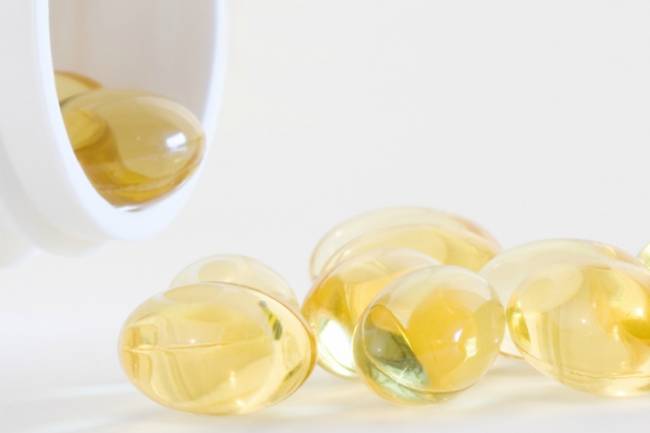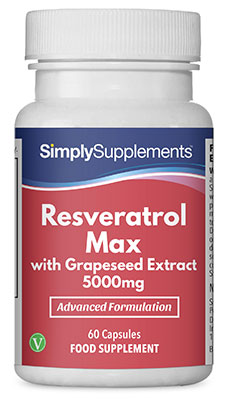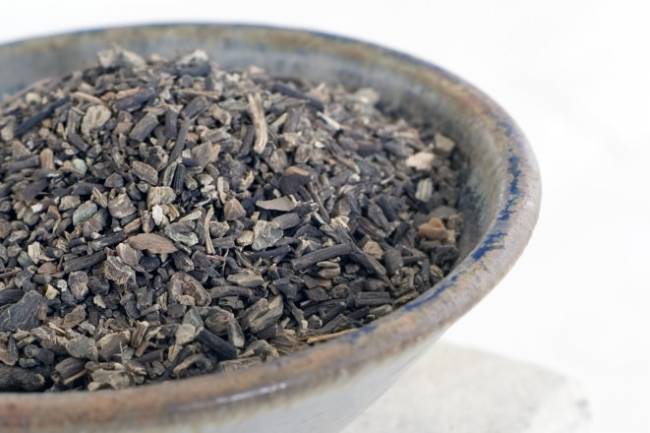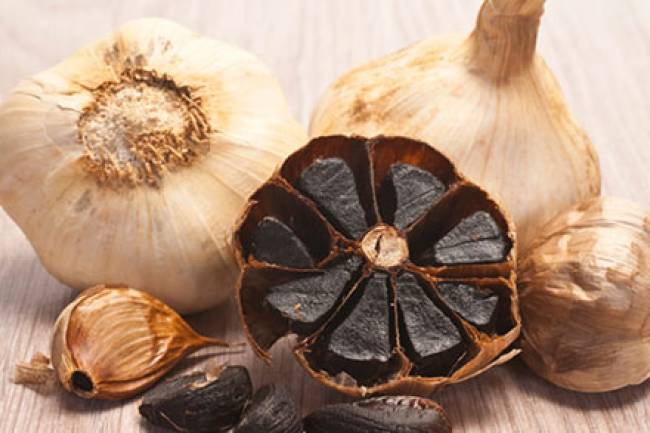How to Boost Your Circulation
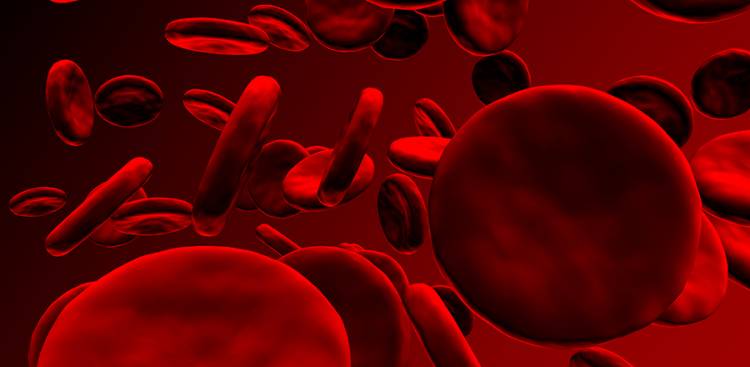
The importance of healthy blood circulation cannot be overstated. However, the complexity of the human body and the wide range of different circulatory functions and systems can often mean that people don't have the necessary understanding to successfully, and healthily, begin to remedy poor blood circulation.
Read our helpful guide to find out how you might be able to help promote it all year round.
How Does My Body Circulate Blood?
The first step to understanding the problem of poor circulation is to know how it works. The circulatory system in your body incorporates your heart, lungs and blood vessels to transport blood to the different organs, muscles and systems within your body. All the different nutrients your body creates, or receives from your diet, use the blood to get to where they are needed to help make sure your body functions properly. When we talk about the circulatory system, we have to remember that there are three different individual systems that all work together to form what we commonly refer to as the ‘circulatory system'. These three independent systems are:
The Heart – Also known as the cardiovascular system, pumps oxygenated, nutrient-rich blood around your body using the blood vessels. Once the nutrients the oxygenated blood carries are deposited at their destination (an organ, a tissue or a muscle), the blood is then pumped back to the heart where it can resupply.
The Lungs – Also known as the pulmonary system, exchange carbon dioxide for oxygen when blood travels to them. The heart and lungs are linked as part of the pulmonary circuit, which involves blood travelling from the heart to the lungs to acquire oxygen. Once the blood is oxygenated, it travels back to the heart where it is then pumped to the rest of the body.
The Blood Vessels – Arteries, veins and capillaries, each with their own size and composition, work together to form the network of pipes throughout our entire body that allow nutrients to travel to and from their necessary destinations. The heart and blood vessels work together to form the systemic circuit.
Why Is Healthy Circulation Important?
Simply put, the worse your circulation is, the less efficiently your body will function. Things like important nutrients, oxygen and even toxins are transported in and around your body through the circulatory system. When this isn't up to scratch, other areas of your health, like energy production, muscle function, the digestive system and even your organs may begin to suffer as a result.
Ways to Boost Your Circulation
It may be daunting to hear about how important healthy blood flow is, as well as how susceptible it can be to damage and illness. Don't worry though, there are plenty of things you can do to help reinforce and support it. Here are just a few of the more popular options you might find helpful to support your circulation.
Refine Your Diet
Like with most areas of health, your diet plays a very important role in supporting healthy blood circulation. Not only are there foods that have the potential to hinder your blood flow, there are some that are renowned for their circulatory health benefits. Some of the more common foods of this nature include:
- Ginger
- Avocado
- Cinnamon
- Green tea
- Chilli peppers and other hot foods
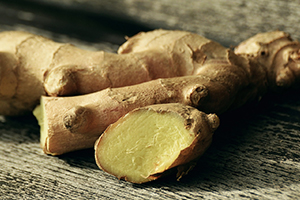 By refining your diet to include circulatory-boosting foods, you may be able to help maintain the well-being of the systemic circuit, ensuring they remain in optimal condition to encourage healthy circulation.
By refining your diet to include circulatory-boosting foods, you may be able to help maintain the well-being of the systemic circuit, ensuring they remain in optimal condition to encourage healthy circulation.
Foods like oily fish such as mackerel and salmon contain the polyunsaturated fatty acids EPA and DHA, which are proven to be able to help lower blood pressure and cholesterol, both of which can contribute to poorer blood flow. Try incorporating foods of this nature into each meal category of your diet to help support your blood circulation at all times.
Another effective way of refining your diet to help boost your circulation is to be aware of and substitute out unhealthier foods. Now this may sound obvious, but a lot of people don't actually know the nutritional context that dictates why a particular food is unhealthy.
When people hear that a food contains fats, a lot of the time they will immediately avoid it because of the common association that fats equal unhealthy. However, there are a lot of different types of fats, some of which can be beneficial to your health whilst others can be detrimental. We talked about polyunsaturated fats earlier in oily fish and avocado, but it's trans fats that you should substitute out of your diet.
Trans fats are artificially created and commonly used in ready-meals, processed foods and cakes to help extend shelf live and preserve the ingredients. These fats are known to be able to help raise cholesterol levels in the blood, which could affect circulation if left to build up in your blood vessels.
Aside from keeping your blood vessels clean and tidy, a key way of improving your circulation is by taking good care of your blood. There are plenty of ways you can do this, but one of the easiest and most accessible ways is to make sure that you meet the recommended daily intake of water.
55% of blood is made up of plasma, which itself is made up of around 92% water. The Eatwell Guide recommends that you should drink 6-8 glasses of water each day. By meeting this guideline, you can help to keep your blood at an optimal consistency, making it easier for your heart to pump it around the body.
Salt intake can also influence your bodily water content. Most of the salt, or sodium, in your body can be found in your intestines, where it works to help ensure water is absorbed into the blood stream. If your sodium intake is insufficient then you may end up losing a lot of water as waste when it passes through the digestive system. Alternatively, if your sodium intake is too high you may become dehydrated, which can in turn thicken the blood in your body.
Knowing how much salt is in the food you eat can be difficult, especially if your diet largely consists of pre-packaged ready meals whose salt content can be misleading. A simple way of regulating your salt intake is to make all your meals from scratch, allowing you to know exactly what ingredients are used and how much salt is being added.
Some have claimed that drinking up to two glasses of alcoholic drinks a day can be helpful in balancing fats levels in the blood. However, going overboard on the beer may cause these fat levels to increase, which may cause blood vessels to become blocked, inhibiting healthy circulation and heart function. Instead of reaching for your favourite lager or spirit, try indulging in a glass of red wine.
Grape skins used in red wine production contain a polyphenol called Resveratrol, which is believed to help lower LDL cholesterol levels in the blood and help against cardiovascular diseases like atherosclerosis.
“Resveratrol, a grape and wine-derived phytoalexin polyphenol, provides diverse health benefits, the most prominent being the best natural medicine to cure CVDs (cardiovascular diseases) including atherosclerosis and hypertension.” Just be sure to stick to the recommendation daily allowances for alcoholic drinks; even though red wine possesses some benefits, too much could prove to be more detrimental than it is helpful.
Develop a Good Exercise Routine
 Exercise is an incredibly effective way of helping to boost and promote healthy blood flow. When we exercise, your muscles need for oxygen is increased, meaning that your heart has to work harder to pump blood around the body. In order to meet this demand, your blood vessels dilate to increase the amount of blood that can travel throughout the body.
Exercise is an incredibly effective way of helping to boost and promote healthy blood flow. When we exercise, your muscles need for oxygen is increased, meaning that your heart has to work harder to pump blood around the body. In order to meet this demand, your blood vessels dilate to increase the amount of blood that can travel throughout the body.
It is this dilation that may help improve your circulation in the long run. By committing to a consistent, comprehensive exercise plan that is tailored to your health, you might be able to see a range of cardiovascular health benefits.
The key to healthy exercise is knowing your own health requirements and structuring a plan that caters to those requirements. Pushing your body too hard too fast could increase the risk of fatal heart health issues like heart disease or heart attack.
When constructing a healthy exercise routine, try looking at focusing on aerobic exercises like swimming, jogging, walking and cycling. These will raise your heart rate, causing your body to work harder than usual, but they're also easy activities for all types of people to try. Experiment to find which activity you enjoy best, the more you like something, the more you'll be motivated to want to do it.
Try to Reduce Stress
In everyday life, there are a lot of different things that can stress us out. Hard days at work, looking after the kids and studying for important tests are just some of the many different things that can generate feelings of stress, which are caused when the hormone cortisol is released into the bloodstream.
Cortisol is a hormone produced in the adrenal glands, which are found just above your kidneys. Cortisol has a lot of different functions in the body, including the regulation of your metabolism, controlling blood sugar levels and it can even influence salt and water balance. Although cortisol is important for the healthy functioning of the body, just like everything else, too much, or too little can be detrimental to your health, especially your circulation.
Don't worry though, as stressed as you might feel, you've got a range of different stress-relieving methods to try that could be able to help your circulation. Just like with warm weather, a nice hot bath can be great for reducing stress after a busy day. By subjecting your body to a warmer environment, you can cause your blood vessels to dilate, increasing the rate of circulation.
Aromatic fragrances like lavender and eucalyptus can be added to help further promote the reduction of stress you might experience. Bathing just before going to sleep is also believed to help induce a much deeper sleep, which may also help normalise the hormonal chemistry within your body.
When people feel stressed, they often turn to unhealthy habits like smoking and drinking alcohol to help cope. However, if you want to help lower stress and improve your health, you're going to want try and stop these habits. Smoking is known to coat the alveoli of your lungs in tar, which can restrict the amount of oxygen that gets into the blood stream. Fatty deposits can also form on the walls of the arteries, causing blood vessel damage which could contribute to future health complications, including reduced blood flow.
Supplements for Circulation
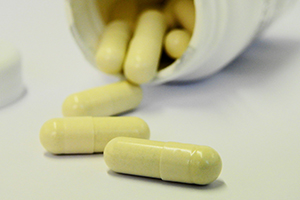 A lot of people turn to supplements as a means of ensuring their bodies receive a comprehensive, steady supply of nutrients to help support specific areas of health. There are a variety of different supplements you can incorporate into your diet that may contribute towards healthy circulation. Finding the right one for you and your health is the key.
A lot of people turn to supplements as a means of ensuring their bodies receive a comprehensive, steady supply of nutrients to help support specific areas of health. There are a variety of different supplements you can incorporate into your diet that may contribute towards healthy circulation. Finding the right one for you and your health is the key.
One of the main advantages to supplements is that they give you access to nutrients commonly found in foods that you don't like. Oily fish like mackerel and salmon contain beneficial levels of omega 3 fatty acids, which are known to help support healthy blood circulation. However, there are a lot of people who don't enjoy the taste of fish, meaning that they're less likely to incorporate it into their diet, missing out on essential nutrients such as EPA and DHA.
Omega 3 supplements allow people with these food aversions to get a steady intake of fatty acids without discomfort or distress caused by unpleasant tastes. Other dietary lifestyle choices can also have the potential to get in the way of getting valuable nutrients that may be beneficial for circulation.
Vegetarian and vegan diets are incompatible with omega 3 capsules, but herb-based supplements are readily available that provide compounds like flavonoids and terpenoids to help contribute to healthy circulation, particularly to the extremities by dilating blood vessels. Before committing to using supplements, talking to your local GP, nutritionist or medical expert is a great way to get professional guidance that may provide better health results. Certain supplements may have the potential to interact with or negate medication, so seeking this professional consultancy is incredibly beneficial.
The Rest Is in Your Hands
Adapting these suggestions to suit your own individual health needs and circumstances can be a fantastic way of contributing to healthy blood circulation. Evaluating your current lifestyle, diet and exercise routines is key to understanding why your circulation might be suffering. If you're ever in any doubt about where to get started with helping your circulation or require additional information, your local GP is the best place to go for professional advice.
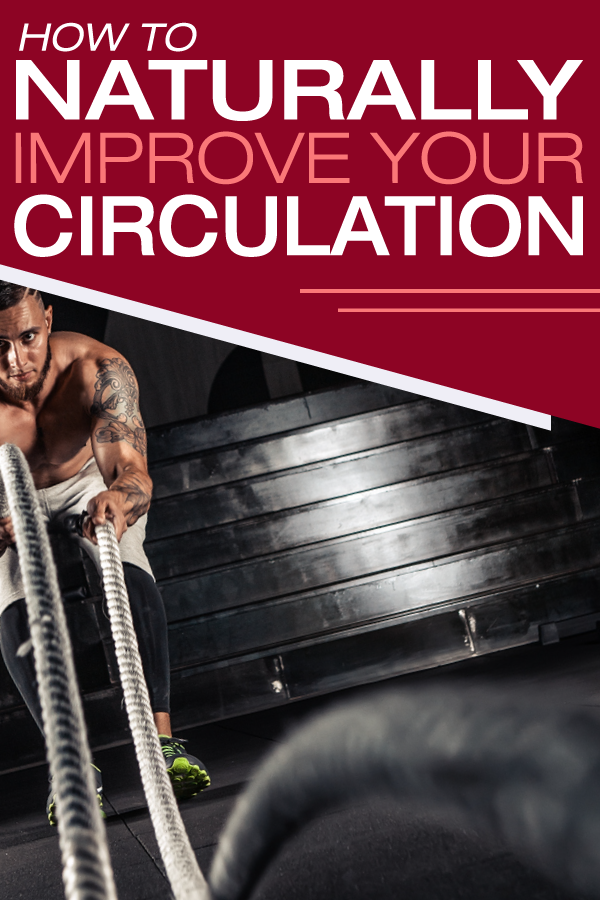
Sources:
https://www.gov.uk/government/publications/the-eatwell-guide
http://onlinelibrary.wiley.com/doi/10.1111/j.1749-6632.2010.05843.x/full

 Nicole
Nicole 
